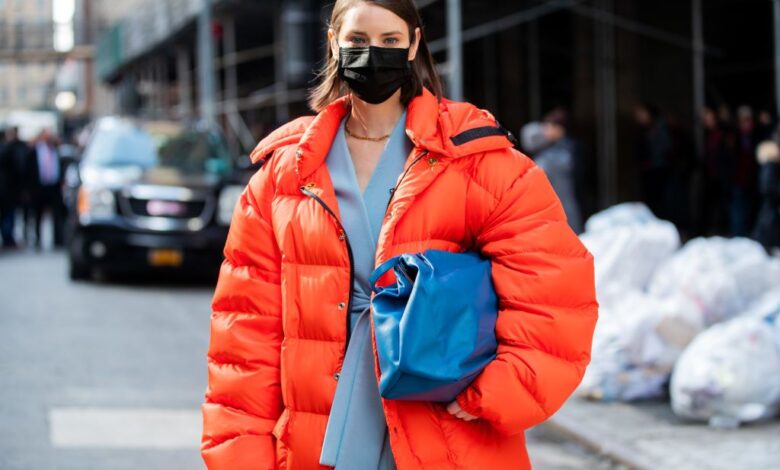
The Fashion Industry has been adversely affected by Coronavirus. The government imposed a lockdown to slow down the cases of the COVID 19. With so many industries and individuals impacted by this lockdown. It would be downright strange if the fashion industry didn’t find itself among them. A lot of us had spent the complete lockdown by wearing pajamas. In this article, you can check how the fashion industry has been hit by the pandemic. Subsequent lockdown, how it is adapting, and moving forward.
Problems Faced by Fashion Industry
A large section of the migrant workers and the daily wage workers were employed in the Fashion Industry where they help with stitching, cutting the garments, and doing basic machine work under the guidance of designers. The majority of these types of workers lost their jobs due to COVID 19. One of the biggest areas which bring business to the Fashion Industry was weddings and events. In the absence of weddings, designers tried to find new ways to save their business which were postponed due to restrictions on large gatherings. No big events were happened during the whole lockdown period due to which this industry faced a terrible hit.
Data and Reports
According to a report which stated that about 1,089 garment factories in Bangladesh had canceled orders worth roughly $1.5 billion due to the Covid 19. Many factories had been shut down at that time. Some workers were given a very little salary and many others received nothing. Workers who lost their jobs did not have any idea how they will survive when everything gets back to complete normally. They can’t even imagine what they will do if anyone from their family needs medical treatment for Coronavirus. Some brands survived by switching over their products from ties, t-shirt to masks. They also started selling perfumes, sanitizers, and various other things.
Black Friday deals will be live in the month of July. Deals During Black Friday in July will save your hard-earned money. So don’t miss the deals.
Sales in the Previous Years
The fashion industry worldwide has been an economic success story for the past decade in the terms of steady growth, good performance in the Asian market, and the rise of online shopping have all contributed to a bright future. According to a survey the global apparel retail industry was valued at $1.78 trillion in 2019, up 14% from the previous year. The sales outlook for 2020 looked optimistic before the outbreak of the lockdown. The Covid crisis, on the other hand, has had a major impact on the fashion industry worldwide. Many retailers are worried about sales numbers, it is evident that the fashion industry as a whole is undergoing significant systemic changes, which will influence consumer behavior, the fashion calendar, and even people’s style.
While there are many areas that are still in lockdown, people are looking for what they should wear now. Although activewear and loungewear are common, the pandemic is expected to change how we dress even after it is completely over. COVID will unavoidably become a new trendsetter, but it is up to designers now to lead this transition. The Great Depression and World War II changed people’s wardrobes. Coronavirus will unavoidably become a new trendsetter, but it is up to designers to lead this change.
How Covid Change the Face of Retail
The COVID-19 pandemic has changed the face of retail like never before. Online shopping has inevitably accelerated as shops closed their doors for an extensive and unpredictable period of time. This has been especially harmful to the ‘fast fashion’ industry, which had already begun to slow for a variety of reasons prior to COVID-19. The COVID-19 pandemic has altered the retail landscape in ways never seen before. As stores closed their doors for an extended and unpredictable period of time, online shopping intensified. This has harmed the ‘fast fashion’ industry, which had already started to slow for a variety of reasons prior to COVID-19.
As a result, people have become much more conscious of their excessive consumption and the effect it has on the environment in recent years. Fast fashion has developed an unhealthy attitude of ‘buy now, throw away later,’ and I believe that this pandemic would hasten people’s thoughts and behavior as they consider what they spend their money on, and where the commodity comes from in the first place. People are becoming more knowledgeable about ethical problems surrounding fashion, such as sustainability, and are making better decisions as a result.
Socioeconomic Problems
Furthermore, due to multiple socioeconomic problems, the quick fashion industry will be impacted by the pandemic. Owing to the loss of income and the need to prioritize their spending, low to middle-income households, who are the primary customers, may take much longer to return to their previous consumption rate. With high levels of unemployment and poverty afflicting society around the world, many people would put off purchasing clothes and accessories from fast fashion stores while choosing how to spend their weekly budget. Higher-income and richer families, on the other hand, would have retained their wealth and will have had more disposable resources.



